A Power of Attorney for Oregon is a legal document that allows the principal to choose a representative responsible for specific tasks and is also required to make decisions on their behalf.
A principal can choose more than one agent to act on their behalf. In Oregon State, most principals are adults who choose their spouses or children to deal with different matters if they are incapable of doing it on their own. As a principal, you can choose to draft it for different reasons such as financial, medical, signing contracts, dealing with real estate transactions, business, taking care of a child, and tax filing. Ensure that you observe the laws of Oregon State as you prepare your POA. It is suitable in all the counties and can be legally used once adequately prepared.
Free Forms
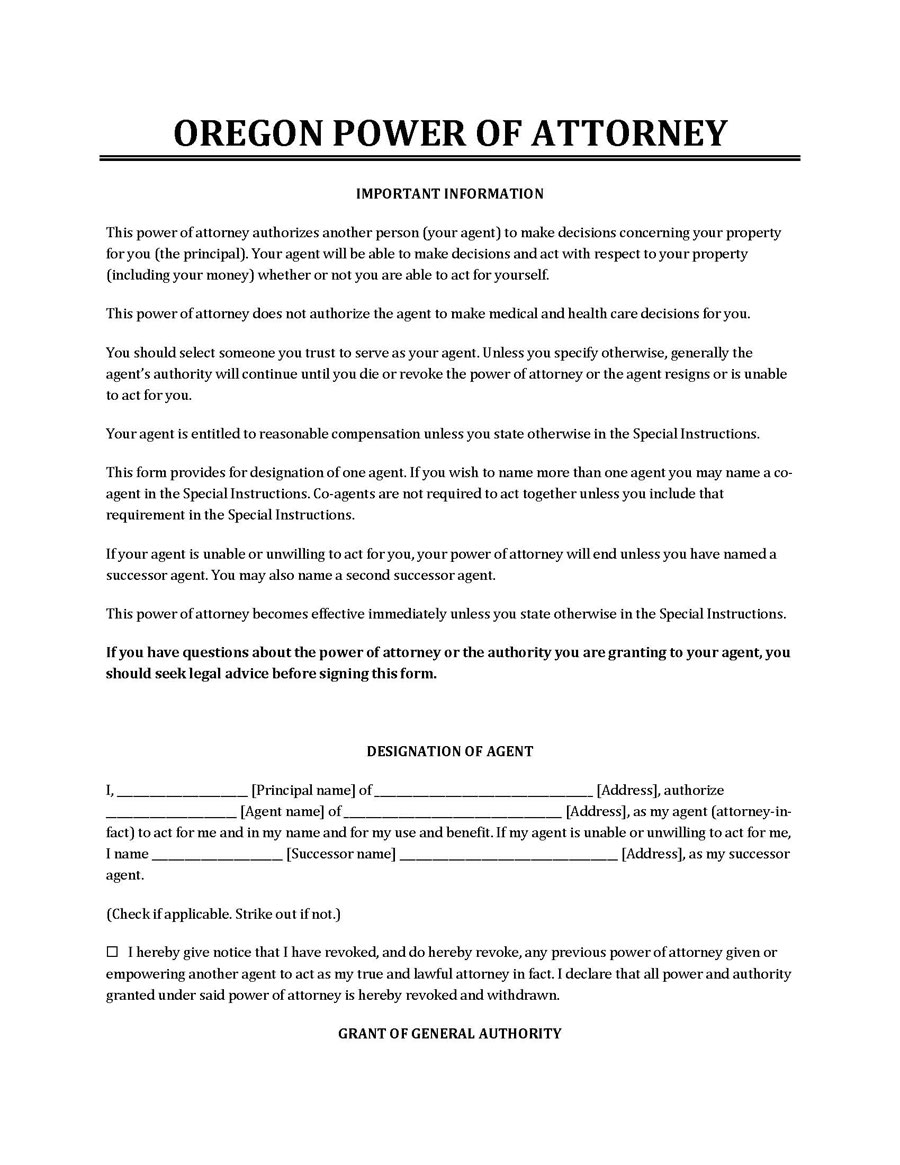
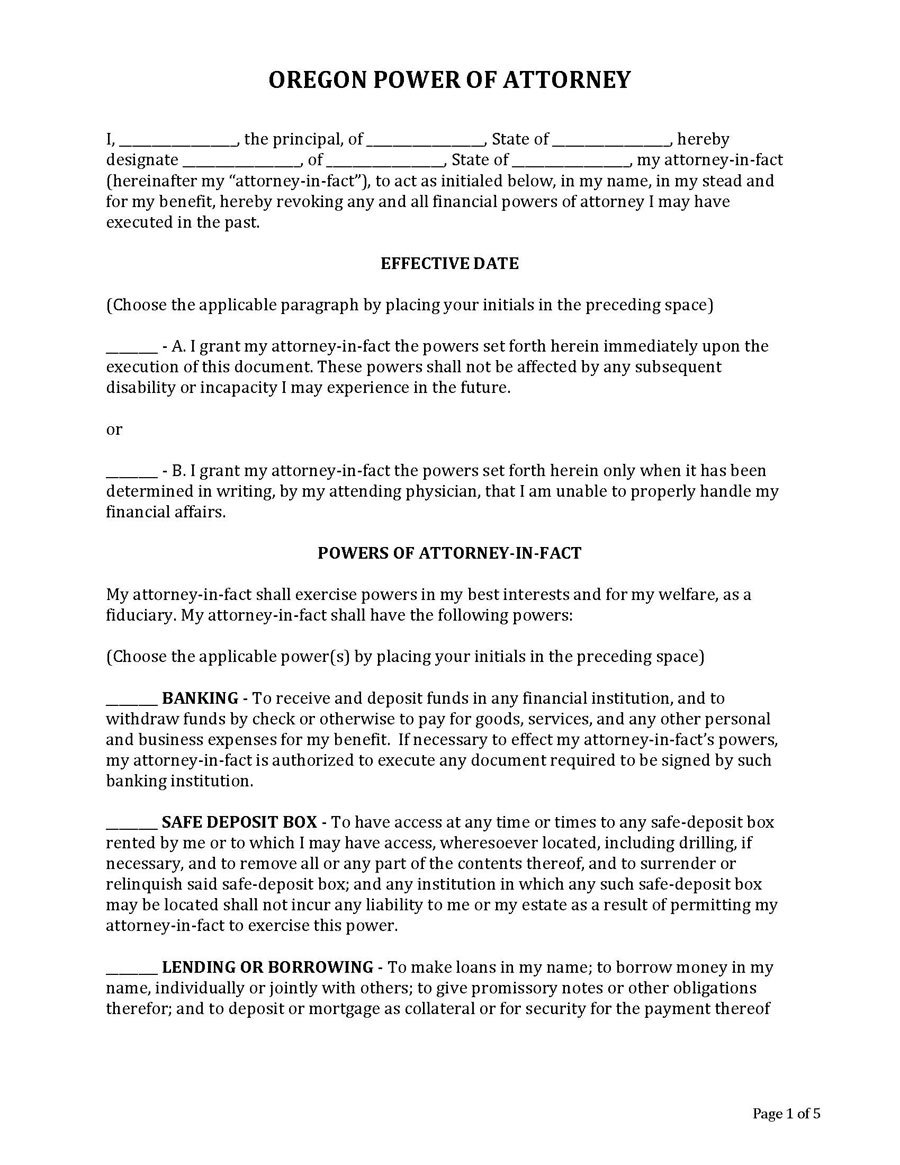
Reasons for Having a POA in Oregon
As a principal over 18 years of age in Oregon State, it is essential and advisable to have it. This is because the form is beneficial for several reasons. For example, you can use it when you are moving into a care facility or travelling either to visit or to live overseas, when you are absent and cannot handle specific issues, or have a long term or terminal illness, when you are getting older, or your health is deteriorating and when you have limited mobility.
Scope of Oregon Power of Attorney
When it comes to the scope of the Oregon power of attorney, the laws of the State allow a principal to assign various powers to their chosen agent(s). As the principal, you can either give the agent broad authority or limit the powers to specific decisions.
Also, Oregon State allows principals to prepare a POA that will only come into effect if a particular event happens, such as if the principal cannot communicate their wishes. In Oregon State, you must indicate the date when this document will become effective. There are no requirements for the principal to add their signature to the form in the presence of witnesses.
Types of Power of Attorney
There are different forms that you can use depending on your needs and requirements as shown below:

Advance Directive POA Form
Download: Microsoft Word (.docx)
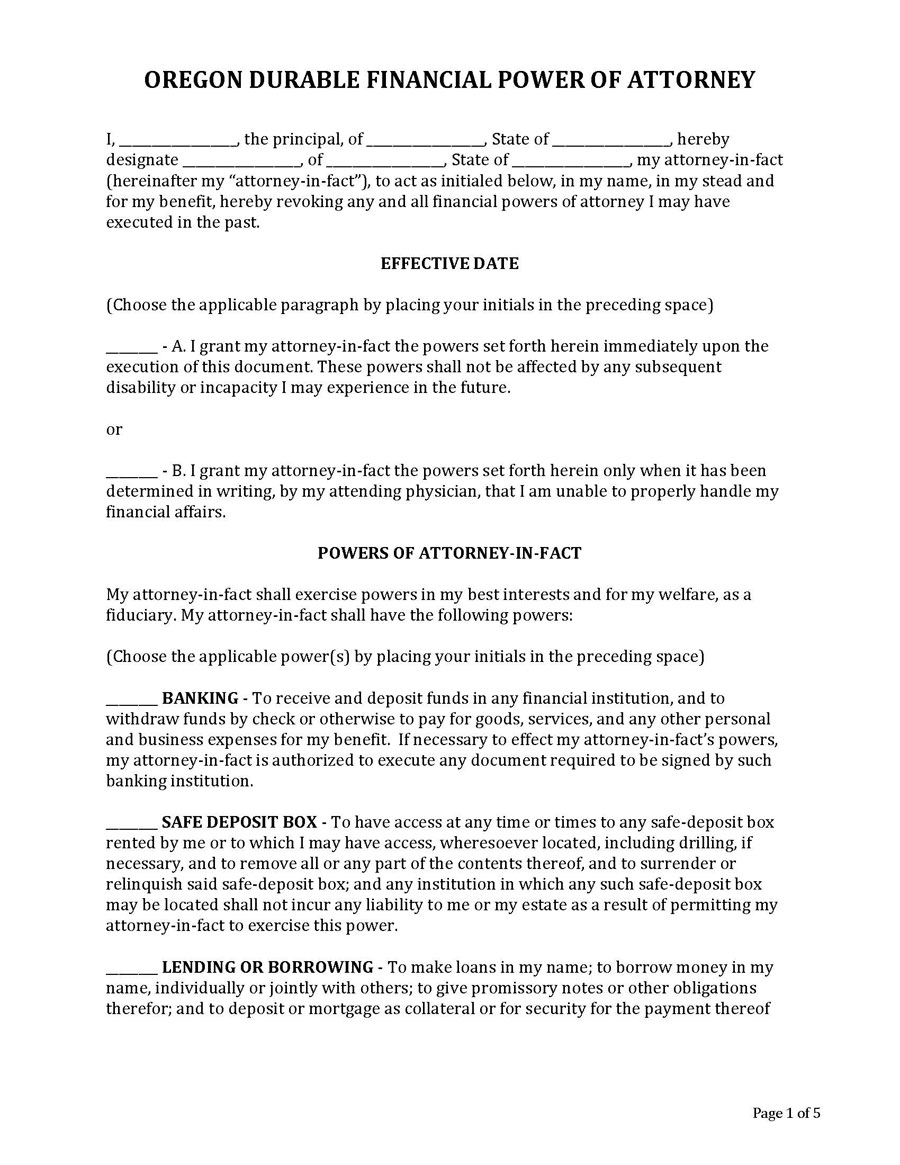
Durable (Financial) Power of Attorney Form
Download: Microsoft Word (.docx)
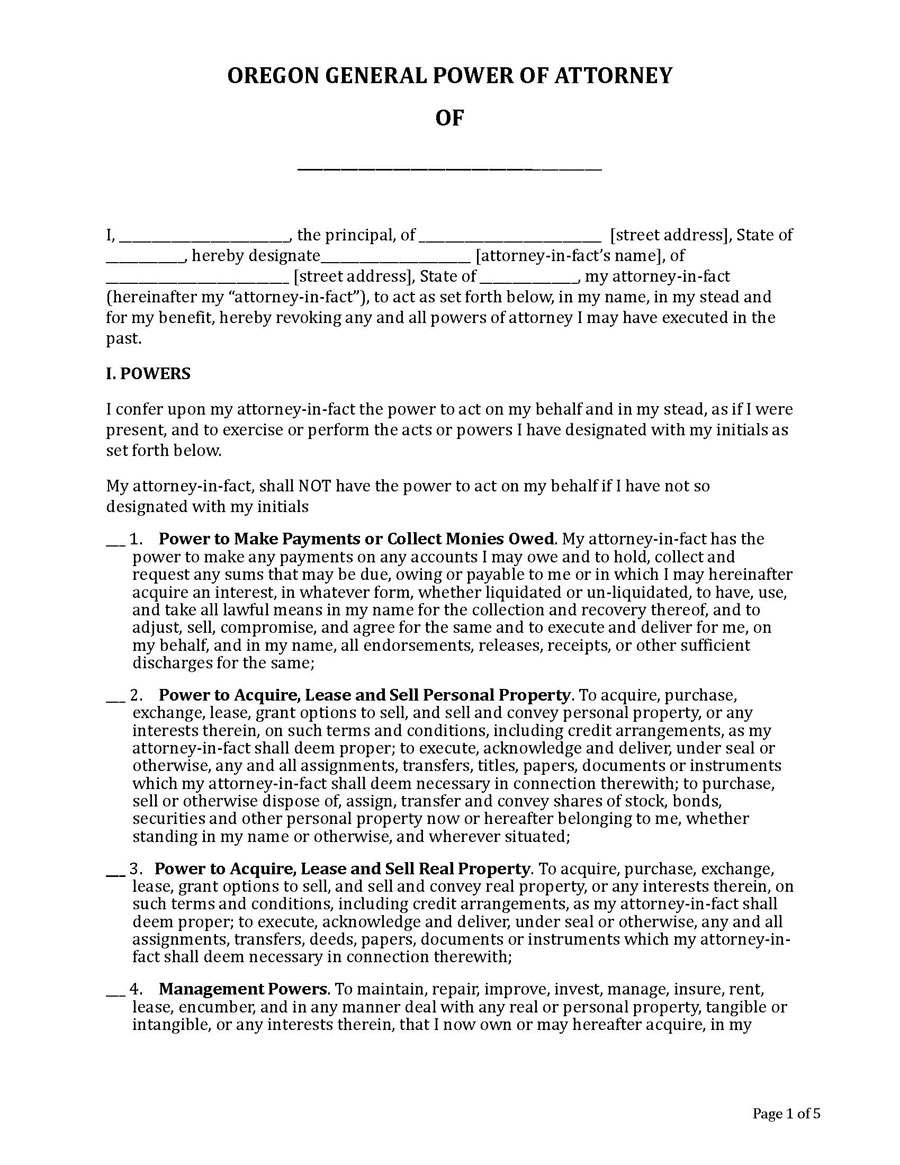
General (Financial) Power of Attorney Form
Download: Microsoft Word (.docx)
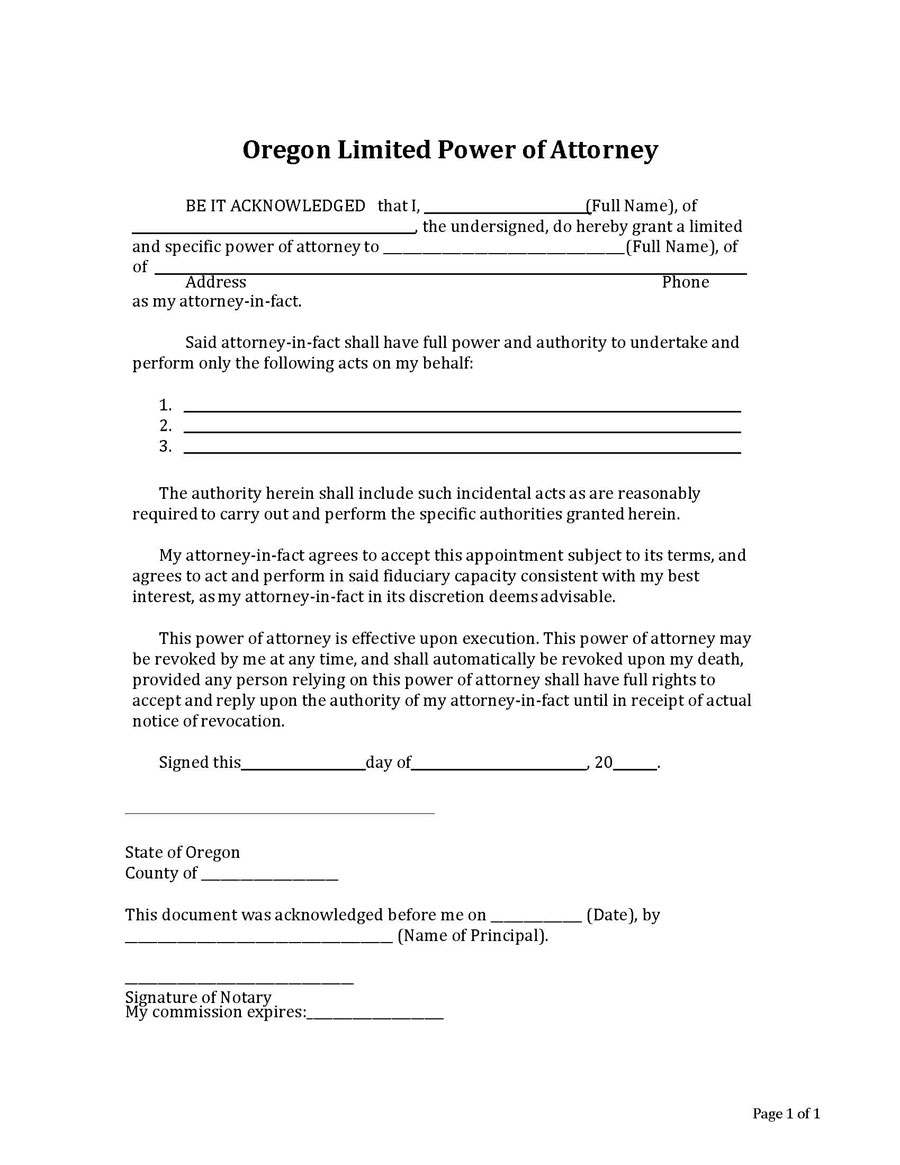
Limited Power of Attorney Form
Download: Microsoft Word (.docx)
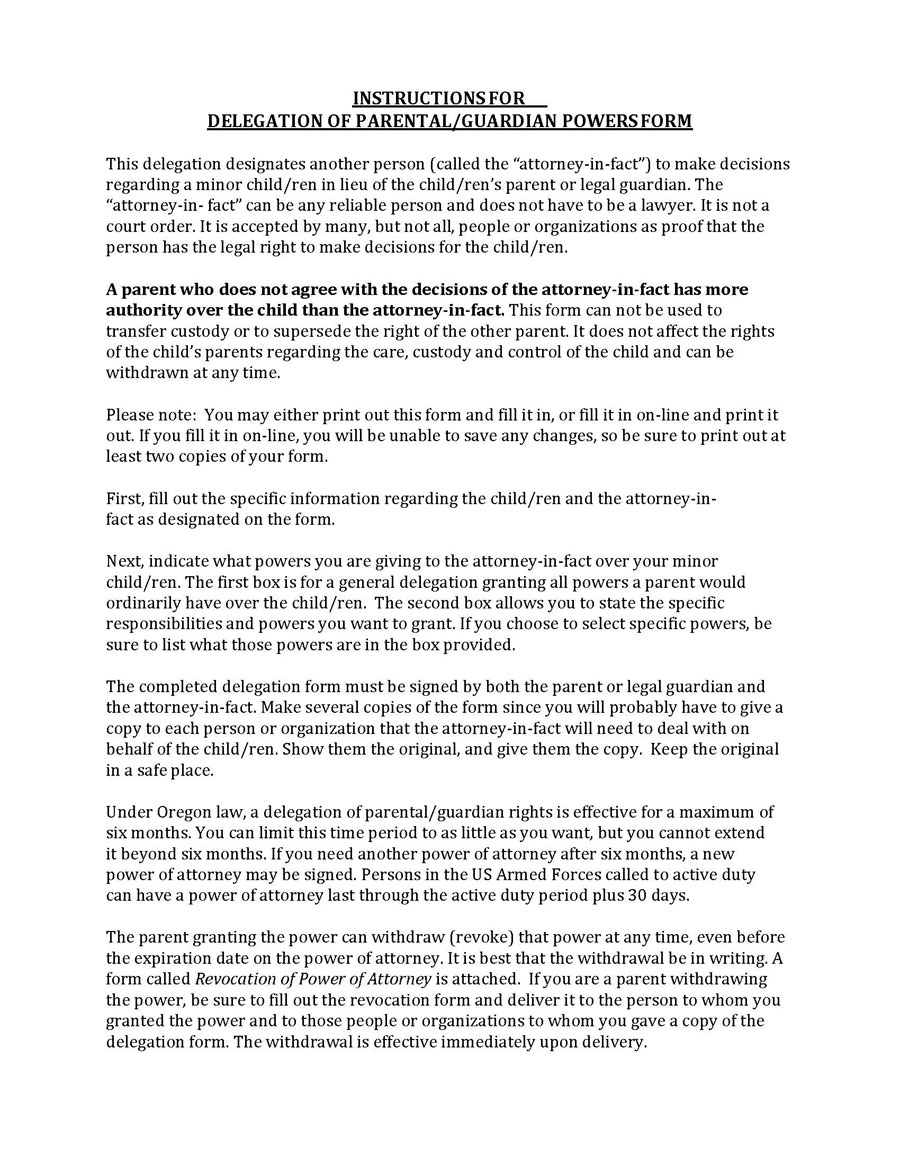
Minor (Child) Power of Attorney Form
Download: Microsoft Word (.docx)
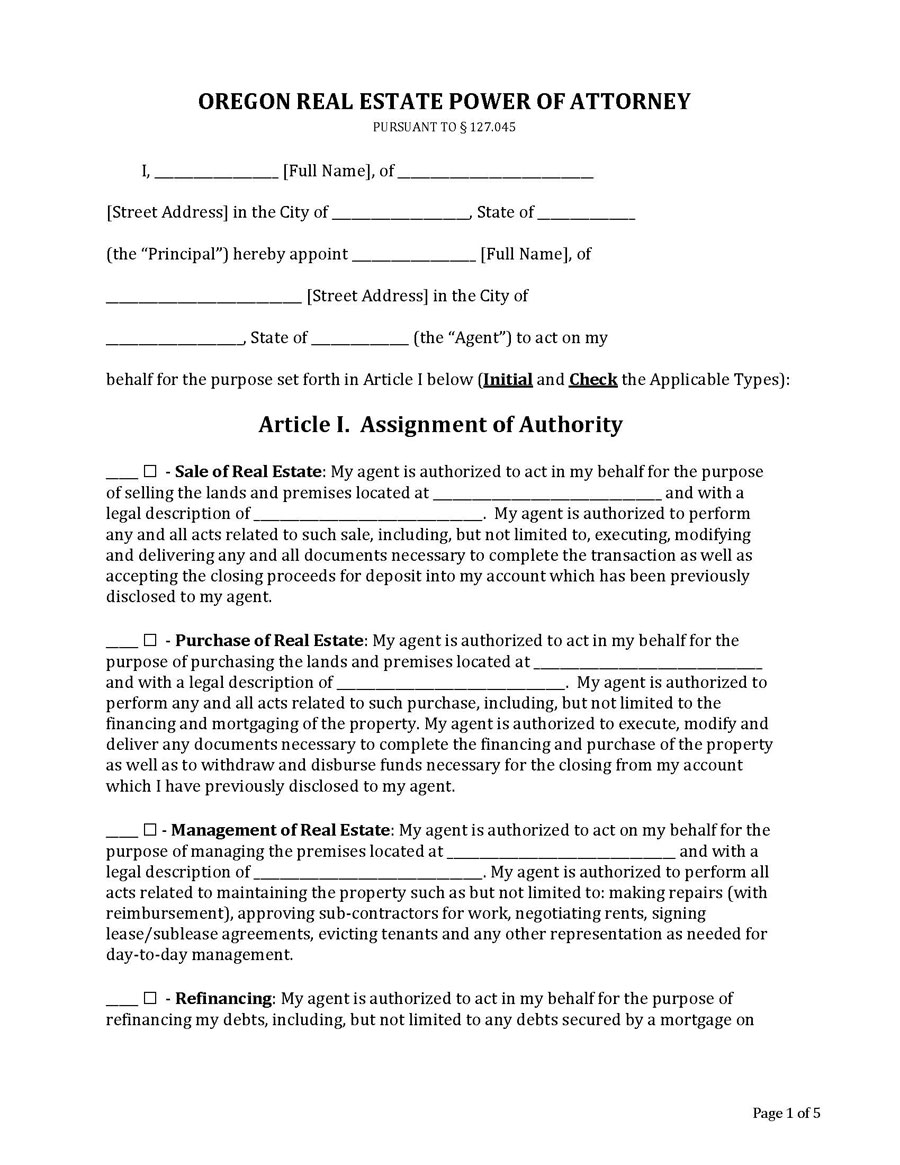
Real Estate Power of Attorney Form
Download: Microsoft Word (.docx)
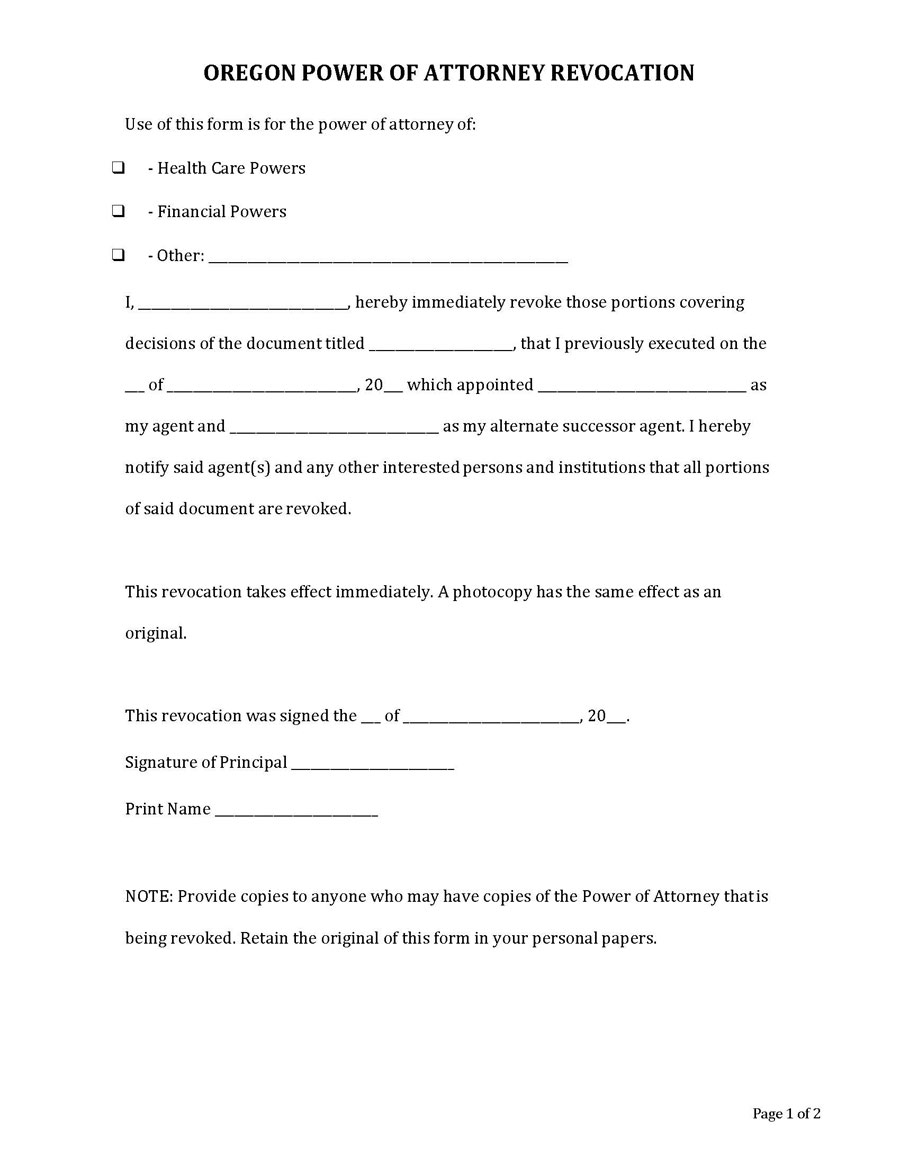
Revocation of Power of Attorney Form
Download: Microsoft Word (.docx)
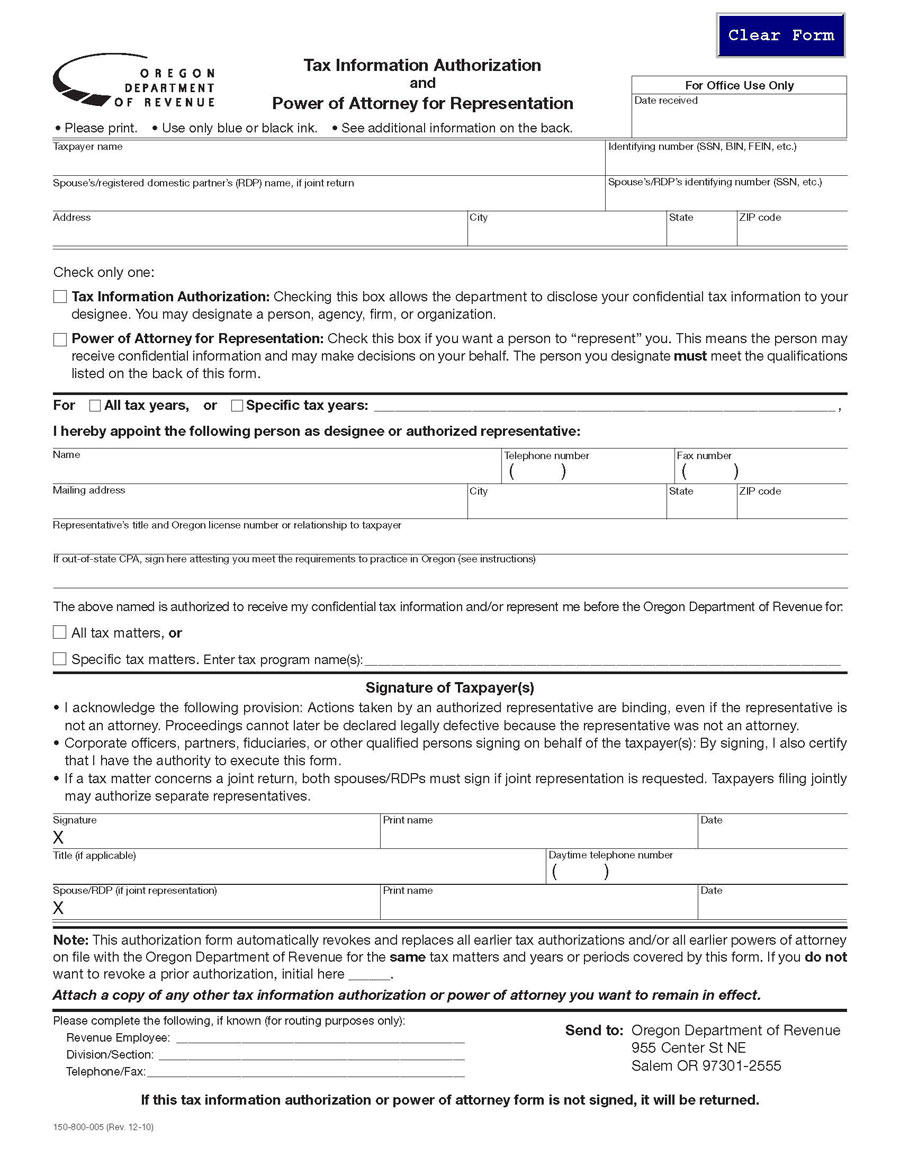
Tax Power of Attorney Form
Download: Microsoft Word (.docx)

Vehicle Power of Attorney Form
Download: Microsoft Word (.docx)
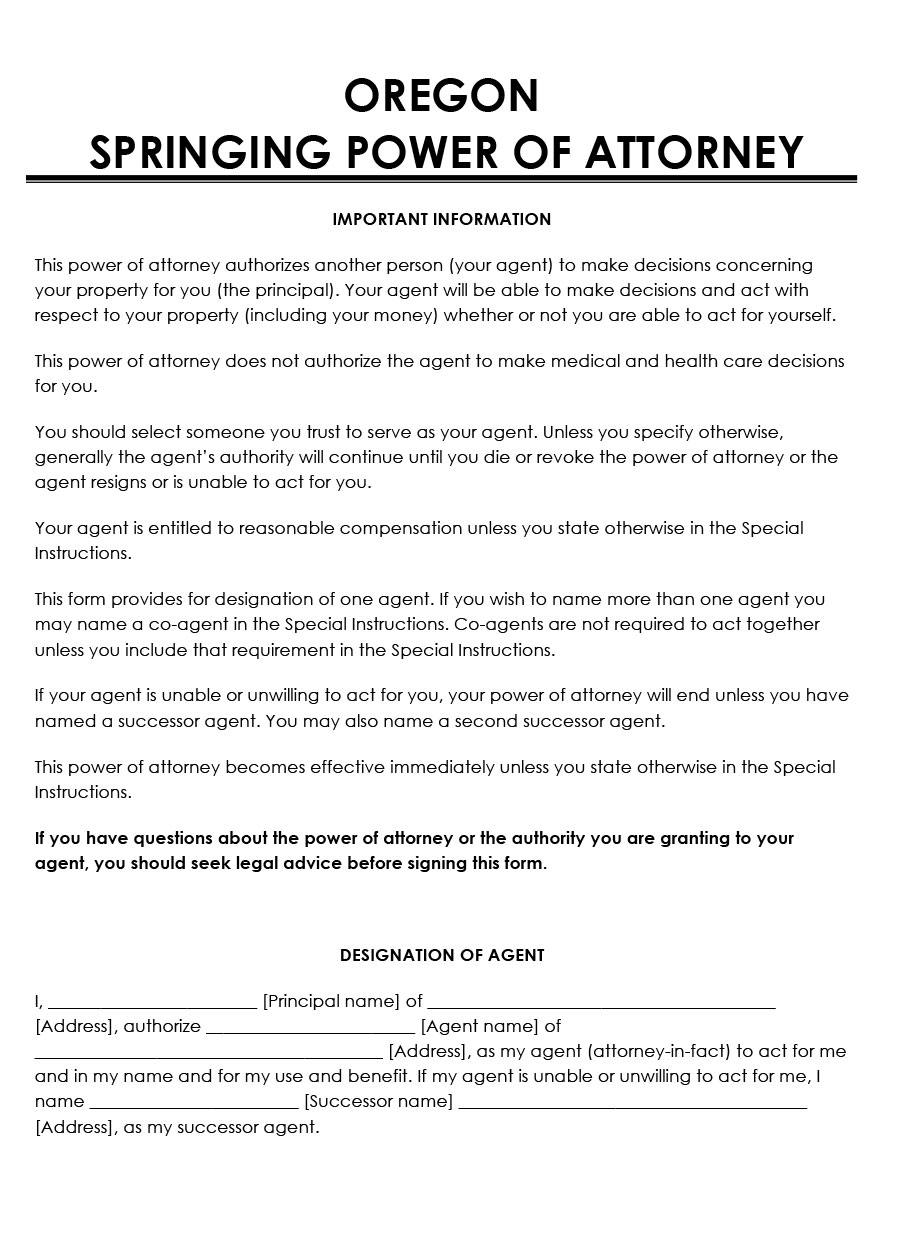
Springing Power of Attorney Form
Download: Microsoft Word (.docx)
Oregon Power of Attorney Requirements
As you prepare any of the mentioned forms, there are requirements that you must keep in mind to ensure that your form is valid. Oregon State has no specifications for the format of this form. There are no requirements for witnesses or the notary public. However, a power of attorney in Oregon can only be recognized by the State if it is in writing, if it highlights the principal’s wishes to choose an agent(s) to act on their behalf and if it has the principal’s signature.
How to Get POA in Oregon?
To get it, ensure that you first review Chapter 12, volume 3 of the Oregon Revised Statutes to grasp the law requirements properly. There should be a principal, an agent, and two backup agents. As the principal, you will need to download the specific form you need, fill it out, and sign it. In addition, you must ensure that the language used in it indicates that you have transferred powers to the agent.
After doing this, you need to give a copy to your agent(s) and send it to any other relevant parties and institutions as proof that you have delegated your authority. Also, as a principal, you can only get it if you are an adult (eighteen years old and above) and are mentally competent according to the law.
How to Revoke Oregon POA?
Although the authority given to the agent(s) is long-lasting, the principal still has the power to revoke their power of attorney in Oregon at any time. Therefore, if you wish to revoke it, you should prepare a revocation of POA document. Keep in mind that a durable POA remains effective even after becoming incompetent or incapacitated.
Also, unless the termination date is stated or you revoke it, it will remain valid and effective until the principal’s death. Oregon State expects third parties and institutions to offer their services to your agent, as long as you have not revoked it. Since this is the case in Oregon State, you need to ensure that you select a trustworthy agent.
If you want to include termination date and ensure that your power of attorney is not durable, ensure that you use proper language that specifies these restrictions.
Frequently Asked Questions
You do not need to work with a lawyer to review it since these forms are easy to prepare and understand. However, you can seek legal counsel in case you need any clarifications.
If you choose to work with a lawyer, it might cost you between $200 to $500 to get a POA in Oregon State.
After making it, you will need to follow the instructions provided at the end to ensure your form is finalized and valid. You will need to sign the document and send copies to your agent(s), related institutions, and other relevant parties.
In Oregon State, a POA does not need to be notarized, witnessed, or recorded. However, specific forms should be notarized, such as the durable power of attorney forms. Also, you will have to ensure that the form is notarized and recorded with the county for real estate transactions. If you use witnesses when signing it, ensure that they are not your agent and are over 18 years of age.












